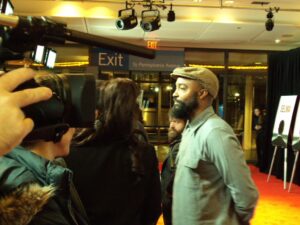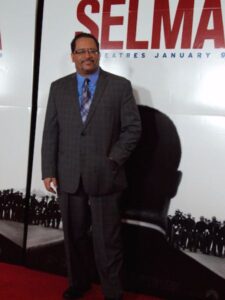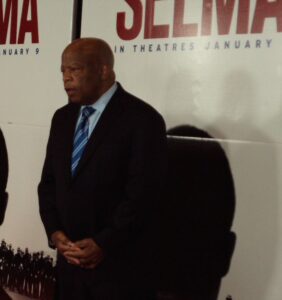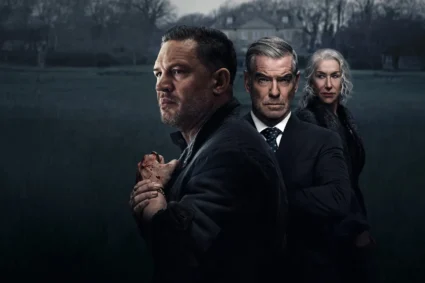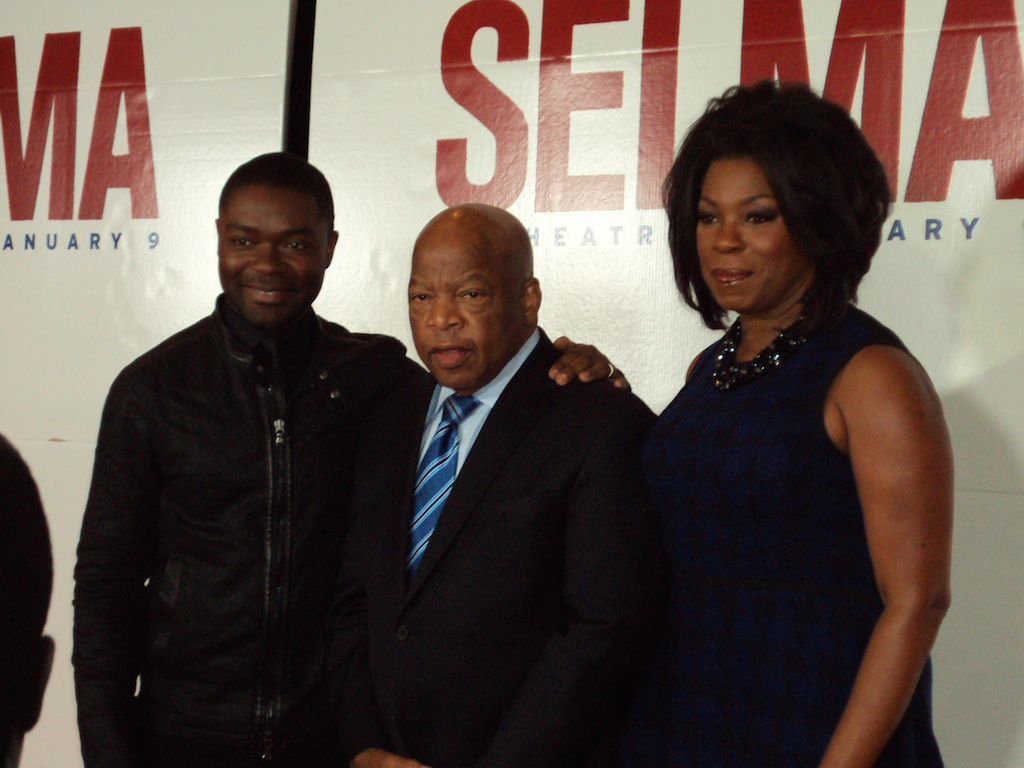
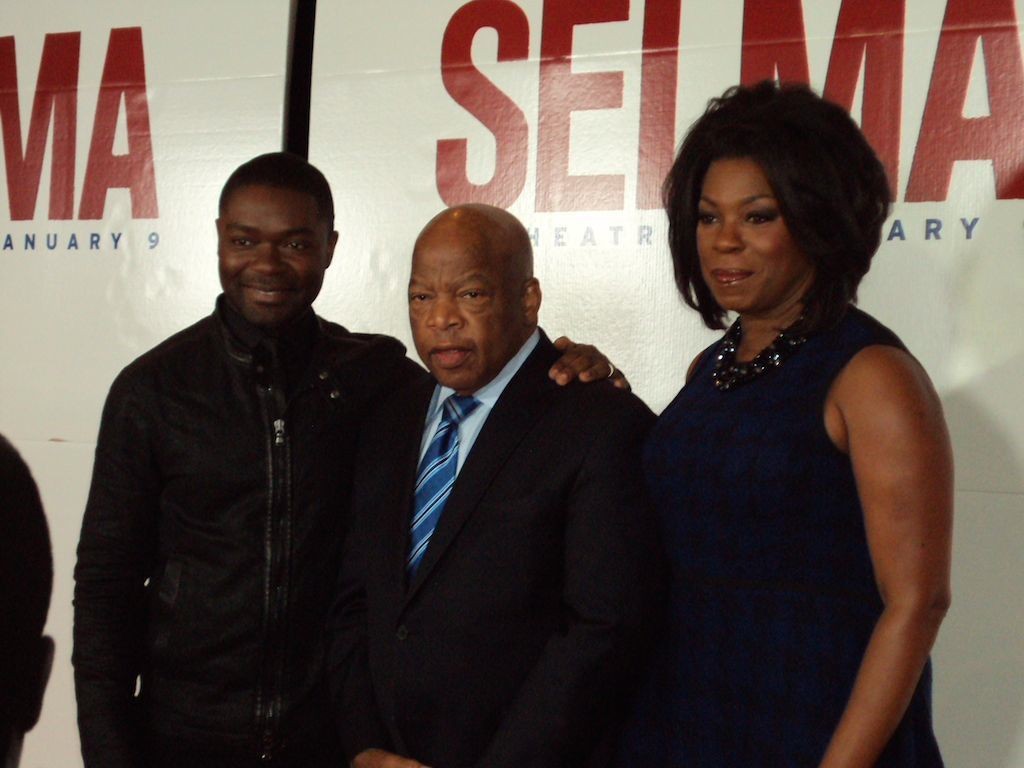
As we are closing out 2014, one of the best Red Carpets I recently covered was the DC Premiere of “Selma”, the new Paramount Picture starring David Oyelowo pas Dr. Martin Luther King and is directed by Ava DuVernay. Selma chronicles the moments of Dr. King leading up to the historic march from Selma to Montgomery. This unique event is honoring Congressman John Lewis who participated in that very March in 1965. I interviewed the cast & crew of Selma & some special guests to get their insights of this powerful film that’s coming out to limited cities (including DC) on December 25th, opening nationwide January 9th.
David Oyelowo: I wasn’t nervous because I didn’t approach the task of playing an icon. You can’t play an icon. You can’t play an historical figure. You can play a man and that I know how to do. I’m a father of four myself. I’m a Christian myself. You know, these were the things that I share with Dr. King that I held on to and I tried to find the other things, the oratory. Thankfully, I’ve done a lot of Shakespeare. So, I’ve given a few speeches in my time that helped. You know, working with a dialect coach. All that good stuff but also, he was a spiritual man and I felt that I had to open myself up to that. I hoped that the spirit that had flowed through him flows through me for the purpose of this film. I felt that during this movie.
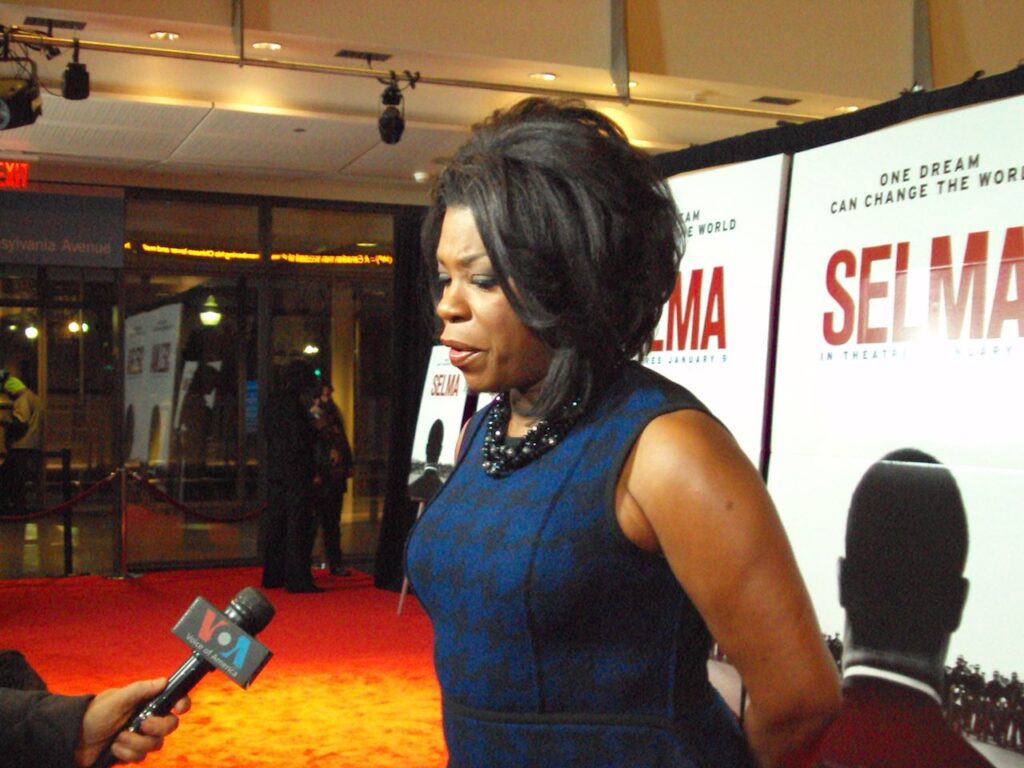
Well, you play such an iconic character, Amelia Boynton. How did you get involved with this project?
Lorraine Toussaint (Amelia Boynton): Ava DuVernay, the great Ava DuVernay called and being to explain that she had written a part for me. A part of a wonderful woman, the mother of the civil rights movement, Amelia Boynton. One of the things that Av said to me when we first talked, she said “ You know, you’re going to be with the level of violence and the level of physicality that we’re going to have engage in on the bridge for “Bloody Sunday”. I said “Absolutely, of course I was” but I think nothing really prepares you for that day. You know where there are horses and batons. There are guns and there are troopers. The kind of bedlam on that bridge that we’re reenacted. That was tough shooting, that was emotionally tough but what was more difficulty when all of the actors gathered silently before shooting. We said a prayer on that bridge because as we looked over into those waters of the Edmund Pettis Bridge, we knew that in those murky waters, there were bodies. There were many, many, many many bodies that we wanted to pay homage to, to right by.
What is the one message you hope people take away from this movie?
LT: That the individual can bring about change. Martin Luther King and these people, these men, these women were very very, very, young. They were in their twenties and early thirties and I think there’s a kind of apathy that is descended on us these days where the individual doesn’t feel necessarily empowered enough to bring about change, real change and that’s not the case. That’s where it starts and that’s how it happens. And we certainly see a great deal of civil unrest in this country right now. We couldn’t have time this film better.
Your job as the cinematographer is to create a story visually. I would like to know “What was going in your mind? What are you thinking?”
Branford Young (Cinematographer): All I can think about at the time is what just making sure that every shot that I was helping Ava create was a mindful shot, was a shot that could be part of a discussion thirty, forty years from now when people are reflecting on where we are in American history then and where we come from that we could somehow let this be a sort of nugget in this conversation about it.
Tell us why should we see “Selma”? Tell all the viewers out there why we should see this powerful film?
Michael Eric Dyson: Well look, this is one of the watershed moments of American History. Certainly, one of the high points of the Civil Rights Movement where the contest between good and evil, between right and wrong, between the forces of justice and the forces of injustice met. And, Selma is the culminating point of struggle for the self-determination of the people who were determined to get the franchise, who wanted to vote, who wanted to able to register their opinion about democracy through formal channels. And so, this was a bloody battle. It was one of the most amazing conflict rations in American History and people should see that. It’s a riveting story about the desire of human begins of all races, creeds and colors to make this country live up to the true meaning as Dr. King said of its creed.
Do you feel that the events of Selma parallel to the recent events that happened today?
MED: Well, there’s no question that what we see going on in Ferguson, what we see going on in Staten Island and what we see happening in the streets of Washington DC or Dallas, Texas or New York City are testimony to people’s desire to make sure that we don’t buy the myth that we’re in a post-racial era that all the work that needs to be done has been done and that the progress has been so permanent that it is wiped away institutional traces of racism. So yeah, I think there are many parallels in the sense that motivated activists, our desirists, of making sure that America becomes all that is meant to be.
What is the message you hope people take away from this film especially from my generation?
Congressman John Lewis: I would love people take away from Selma a message of hope and optimism. A Message of determination. Never ever give up. You never ever give in. That you be persistent & consistent.
In case you haven’t heard, Selma got four Golden Globe nominations including Best Picture – Drama, Best Actor and Best Director. Check it out when it comes to theatres – January 9th. Reporting from the Newseum, this is Dean Rogers for The Rogers Revue signing off.
Be sure to check my second part of the “Selma” interviews, as I talk to David Oyelowo and director Ava DuVernay. Check it out TOMORROW!
